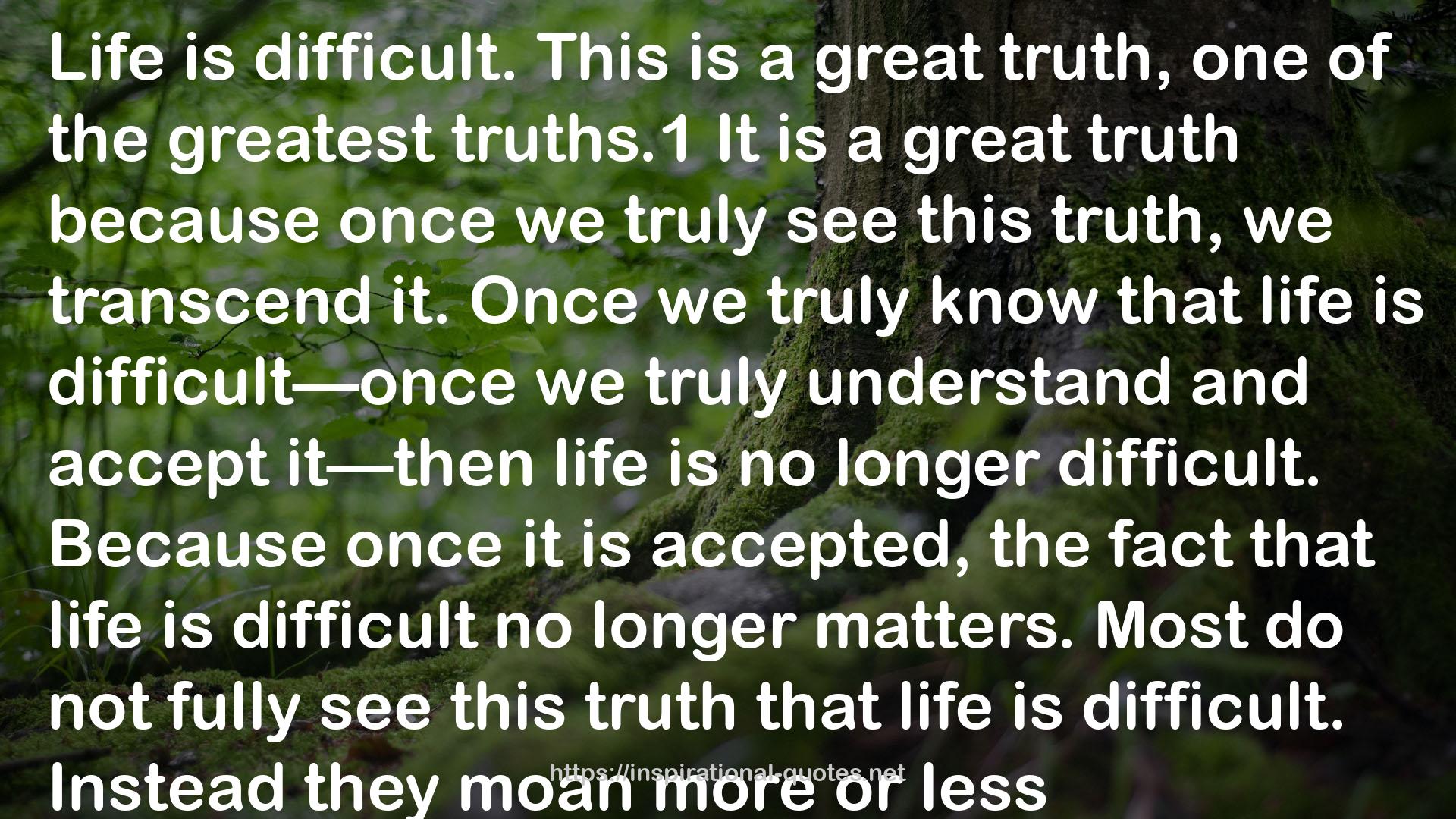" Life is difficult. This is a great truth, one of the greatest truths.1 It is a great truth because once we truly see this truth, we transcend it. Once we truly know that life is difficult—once we truly understand and accept it—then life is no longer difficult. Because once it is accepted, the fact that life is difficult no longer matters. Most do not fully see this truth that life is difficult. Instead they moan more or less incessantly, noisily or subtly, about the enormity of their problems, their burdens, and their difficulties as if life were generally easy, as if life should be easy. They voice their belief, noisily or subtly, that their difficulties represent a unique kind of affliction that should not be and that has somehow been especially visited upon them, or else upon their families, their tribe, their class, their nation, their race or even their species, and not upon others. I know about this moaning because I have done my share. Life is a series of problems. Do we want to moan about them or solve them? Do we want to teach our children to solve them? Discipline is the basic set of tools we require to solve life’s problems. Without discipline we can solve nothing. With only some discipline we can solve only some problems. With total discipline we can solve all problems. What makes life difficult is that the process of confronting and solving problems is a painful one. Problems, depending upon their nature, evoke in us frustration or grief or sadness or loneliness or guilt or regret or anger or fear or anxiety or anguish or despair. These are uncomfortable feelings, often very uncomfortable, often as painful as any kind of physical pain, sometimes equaling the very worst kind of physical pain. Indeed, it is because of the pain that events or conflicts engender in us all that we call them problems. And since life poses an endless series of problems, life is always difficult and is full of pain as well as joy. "
― M. Scott Peck , The Road Less Traveled: A New Psychology of Love, Traditional Values and Spiritual Growth
